Shalva Denisovich Inal-Ipa, one of the prominent figures of the Abkhaz science, a remarkable scientist, doctor of historical sciences, devoted more than fifty years to his work and made a significant contribution to the study of history, ethnography and literature of Abkhazia.
Shalva Denisovich Inal-Ipa was descended from the old Abkhaz princely family of Inal-Ipa. Shalva Denisovich himself wrote his name in the following version: with two capital letters, which is confirmed by all his documents. This is how the last name was recorded in the 19th century, and when the Russian imperial society approved the coat of arms of Inal-Ipa, they also approved the spelling of the name Inal-Ipa in two words, starting with a capital letter hyphenated. The whole family of Shalva Inal-Ipa still writes their surname that way.
He was born on October 20, 1916 (1914 was mistakenly indicated in the documents) in the village of Gup in the so-called Abzhui part of Abkhazia. These places for the family of Inal-Ipa were historical places of residence. The daughter of Shalva Denisovich Arda Inal-Ipa, who carefully keeps the history of her family and many valuable details of the life of a famous scientist, tells about this.
"My father’s great grandfather Georgy Inal-Ipa was forced to leave Bzyb Abkhazia, where they lived on their lands in the area of Kaldakhvara and Pitsunda, because he and his brother Narchchou did not want to obey the will of General Gorchakov. So our branch of the Inal-Ipa genus ended up in Abzhui Abkhazia - first in the village of Reka, and then in the village of Gup, where Shalva Denisovich was born. He lost his parents early and the Atumaa family, as well as the well-known educator of Abkhazia, Peter Charaya, played an important role in his upbringing," says Arda Inal-Ipa.
In the Gorsky School
After the death of his father in 1922, Shalva and the other children in the family were raised by his mother. A very important, momentous episode in his life, Shalva Denisovich himself considered entering the Sukhum Gorsky School (today known as Sukhum Gorsky Secondary School No.10 named after Nestor Lakoba - ed.).
The commission from Sukhum selected him as a capable student for transfer from an elementary school to Gorsky one. Little Shalva was infinitely happy to be in such an enlightened environment as the High School of that time was. Despite the fact that Shalva Denisovich knew only a few words in Russian, he very quickly became one of the best students in the school.
"The teachers of the Gorsky School had a great influence on his formation. Many of the names of his teachers were familiar to us from childhood," recalls Arda Inal-Ipa.
One story of the school period speaks eloquently about the personality of Shalva Inal-Ipa. After being transferred to Gorsky School, he was haunted by the thought that his friend, also a very capable boy, remained in elementary school. Shalva made his way to the school principal, Kondrat Fedorovich Dzidzaria, and told about his friend. Kondrat Fedorovich believed the boy and gave him two days to bring his former classmate to Gorsky School.
"You can imagine how difficult and scary it was for one to get from Sukhum to Gup at that time, but Shalva Denisovich managed it," says Arda Inal-Ipa. - As a result, they both graduated from Gorsky School with gold medals. Unfortunately, a friend died young in the Soviet-Finnish war (war between the USSR and Finland from November 30, 1939 to March 13, 1940 — ed.)."
Brother of the "public enemy" and universities
The years of Stalinist repressions had a hard effect on the Inal-Ipa family. First, in 1937, his brother Illarion was arrested and shot as a "Trotskyist" (supporter of the theory representing the development of Marxism on the basis of the views set forth by Leon Trotsky - ed.). Then in Petrograd, in connection with the so-called "Kirov case" (murder of the Soviet politician Kirov in 1934 served as a pretext for the start of mass repressions in the USSR - ed.) another Shalva’s older brother, Ippolit, who was a graduate student of academician Nikolai Vavilov, was arrested. Unable to withstand these blows of fate, Shalva's mother died of a heart attack just in those days when the young man took the final exams at school.
In one of the television interviews, Shalva Denisovich says that after school he had such high academic performance in many subjects that it was even difficult for him to choose a certain field, but he went for philosophy. Having gone to Moscow, he entered the Philosophy Department of the Moscow Institute of Philosophy, Literature and History named after Chernyshevsky. However, he was not allowed to study there as a "brother of the public enemy".
In 1938, Inal-Ipa entered the Faculty of History of the Moscow State Pedagogical Institute named after Libkhnet, but he could not finish this educational institution, due to the beginning of the Second World War. He went to the front, participated in the construction of defensive anti-tank strips on the Desna River. He was seriously ill there and was forced to travel home to Abkhazia. He continued his studies at the history department of the Sukhum Pedagogical Institute, which he soon graduated with honors.
In 1943, Shalva Inal-Ipa became a graduate student at the Institute of History of the Academy of Sciences of the Georgian Autonomous Soviet Socialist Republic, specializing in ethnography. The first research topic he chose was the traditional institutions of marriage and family among the Abkhaz.
In 1946, Shalva Denisovich was enlisted as a research fellow at the Abkhaz Research Institute named after Academician Marr, where he worked until 1988 and reached the posts of head of the department of ethnography and deputy director for science. He combined scientific research with teaching and working in the Abkhaz State Museum.
Scientific interests
Doctor of Historical Sciences Yuri Anchabadze, in his essay on Inal-Ipa, wrote that his scientific work began in the post-graduate years. While traveling on field expeditions to villages and districts of Abkhazia, Shalva Denisovich carefully recorded material on two topics: he collected Abkhaz Nart legends and researched, classified toponymy (set of geographical names - ed.) of Abkhazia. While working on his thesis, he paid close attention to collecting information on the customs and traditions of the Abkhaz in the sphere of family and social life. These two areas of scientific research remained in the focus of attention of Inal-Ipa.
The range of scientific interests of Inal-Ipa included ethnogenesis (ethnic origin, ethnos — ed.) and the ethnic history of the Abkhaz people. "Shalva Denisovich Inal-Ipa paid particular attention to the study of specific forms and results of the historical contacts of the Abkhaz with the kindred North Caucasian world —Abazins, Adygs, and Ubykhs who were of particular interest for him", Anchabadze writes.
Another research topic of the scientist was the Abkhaz language. In 1960, together with Mushni Khashba, he participated in the compilation and editing of the Abkhaz terminological dictionary, in the 1980s he was the chairman of the commission on the state of teaching and learning of the Abkhaz language in educational institutions of the republic.
Inal-Ipa's extensive research is also associated with folklore: he is recognized for researching folk tales - the Nart epos. Of great importance are his articles and essays on Abkhaz literature. Together with Khukhut Solomonovich Bgazhba, Shalva Inal-Ipa is called the founder of the genre of literary criticism in Abkhazian humanitaristics (humanitarian science – ed.).
The fundamental work of Inal-Ipa "The Abkhaz", published in augmented form in 1965, according to Yury Anchabadze, can be considered as an encyclopedic set of information on ethnogenesis and ethnic history, the material and spiritual sphere of the Abkhaz culture.
Scandalous book and loss of archive
In 1976, the monograph "Issues of the ethno-cultural history of the Abkhaz" was published. This work brings an important result of Inal-Ipa's research in the field of the ethnogenesis of the Abkhaz people.
"Meanwhile," says Anchabadze, "it is often a very insecure affair to go deep into ethnogenesis and ethnic history. Issues of the origin of nations, the ratio of ethnic territories, aboriginality or alienality of the local population, and other similar problems that have lagged behind for today, and even millennia, have always had a politically acute character, and therefore were under the vigilant supervision of ideological and supervisory authorities."
The book caused great dissatisfaction with the Georgians, a massive persecution of Shalva Inal-Ipa began as a scientist and he was accused of nationalism, in an attempt to "embroil the Abkhaz and Georgian peoples."
During the 1992-1993 Patriotic War of the people of Abkhazia, Shalva Inal-Ipa and his spouse Mira Khotelashvili-Inal-Ipa remained in occupied Sukhum. On October 22, 1992, when Georgian guardsmen committed arson attack on the Abkhaz Institute of Language, Literature and History (today the Abkhaz Institute of Humanitarian Studies named after D.I. Gulia – ed.), most of the scientific works, manuscripts of Shalva Denisovich, burned in fire, including those ready for publication.
It was a severe blow to the scientist, from which, according to his daughter, he could not recover until the end of his life. For example, after that fire, he never left the apartment, believing that he was obliged to save at least his home archive, which was also of tremendous value.
With family and friends
According to Arda Inal-Ipa, Shalva Denisovich was a very sensitive, attentive father: "He could somehow gently, but persistently, through examples from the lives of prominent people, from history and from his own life, instill values and convince of the need to have firm principles. He knew how to admire the bright actions of people and thus taught us to appreciate the nobility, courage, mercy, dedication ... He had very little free time, but on weekends, if he was not busy with his scientific or social life, the whole family went to Adzyubzha, where Ippolit Denisovich lived with his family (brother of Shalva Inal-Ipa - ed.). These were wonderful moments of communication. We heard most of the stories about ancient Abkhazia, customs and traditions, heroes and events of the Soviet period, the genus of Inal-Ipa and family stories at a table in a hospitable Adzyubzha house. Often, Shalva Denisovich took us to archaeological sites, introduced us to historical monuments."
Daughter Arda and son Adgur knew from the very early years of their father all the problems associated with an objective study of the history of Abkhazia. When the children grew up, the scientist could share with them his feelings about the fate of his native land. But he shared not only this. So, he managed to inculcate in them his personal addictions, one of which was a journey through the mountainous Abkhazia. Adgur Inal-Ipa was so carried away by the mountains that he even conquered Mount Elbrus. And Shalva Denisovich, who himself was a wonderful rider, prompted his daughter Arda to ride a horse.
Shalva Inal-Ipa, of course, inspired his son and daughter with his personal example. "I loved when my father came to Moscow during my studies," recalls Arda Inal-Ipa, "these were always days full of interesting conversations, visits to museums, the Bolshoi Theater. Shalva Denisovich always warned us not to be locked within one filed, but to use all the possibilities of familiarizing with Russian and world culture."
Hunting for toponymy and speeches of a toastmaster
Of the many bright moments in the life of the scientist, the daughter highlights the return of Shalva Denisovich from the first visit of the Abkhaz delegation to Turkey, where he had unforgettable meetings with the Abkhaz Diaspora. She also remembered her visit to the outskirts of Sochi, where Inal-Ipa carefully recorded the still preserved Abkhaz toponymy and spoke bitterly about the tragic events that unfolded in these places in the 19th century.
The house of the Inal-Ipa family has always been full of guests. "Scientists from Moscow and Leningrad came, friends and colleagues of the father, bright personalities," says Arda Inal-Ipa, "There was always a fascinating conversation. In addition, Shalva Denisovich was a wonderful toastmaster, whom the guests listened with great interest. It is difficult to name all his friends: he was a sociable person. It seemed to me that among his like-minded people both in science and in the writing world, from those who were concerned about the fate of the Abkhaz people, there was a kind of fraternity, and I would not want to miss anyone from this glorious and considerable list. I will only name the faithful childhood friends of Shalva Denisovich in the village of Gup, the friendship with whom lasted all his life. At any time, sad and joyful, they were together: those were Yazygu Gabelia, Alexey Gvaramia and Lev Garmelia."
The sad events of the last years of the life of Shalva Inal-Ipa were only beginning with the loss of a unique archive. At the very end of the Patriotic War, he receives another severe blow of fate: during the liberation of Sukhum, his only son, a brilliant young scientist, physicist, employee of the Moscow Institute of Space Research Adgur Inal-Ipa, dies. One can only guess what feelings then seized the father, and the whole family.
Shalva Denisovich survived his son for two years: he died in September 1995.
The heritage of the scientist Shalva Inal-Ipa is enormous: only in order to study it, serious work of specialists is needed. His works can be interesting both to ethnographers, historians, and literary critics, as well as to all those who are fascinated by the old life and customs of the Abkhaz, their customs and way of life.
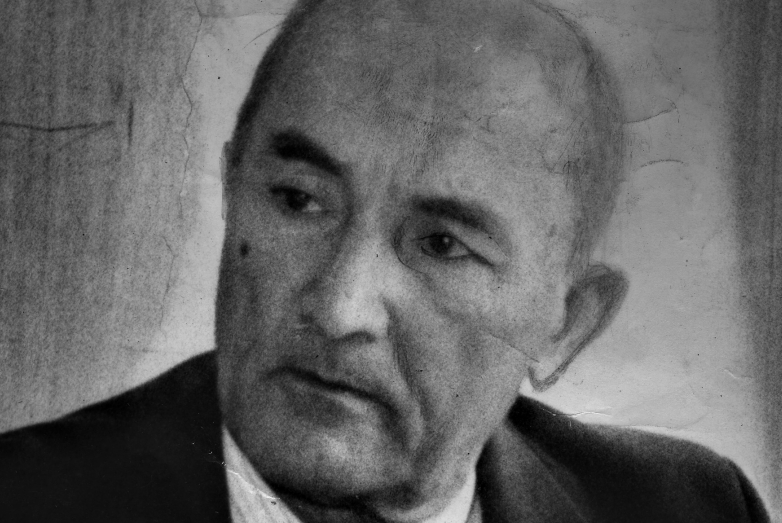
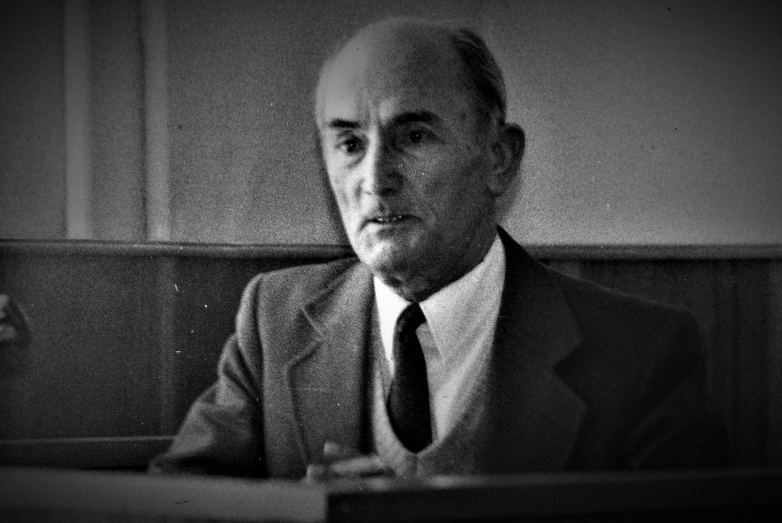
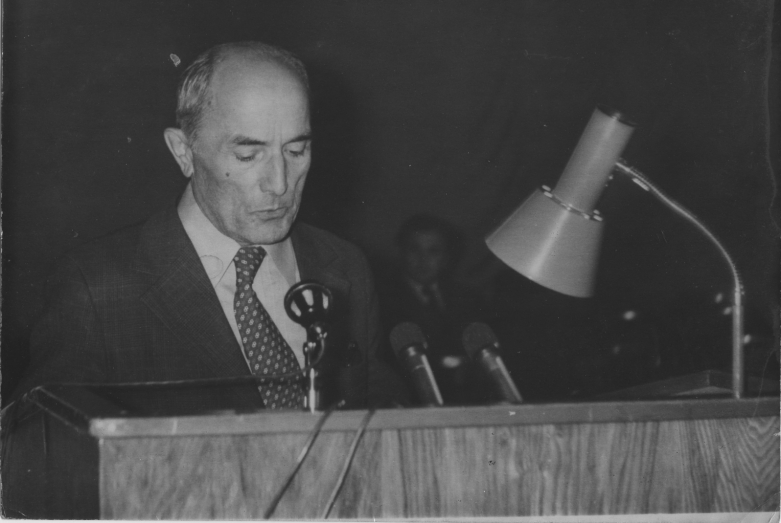
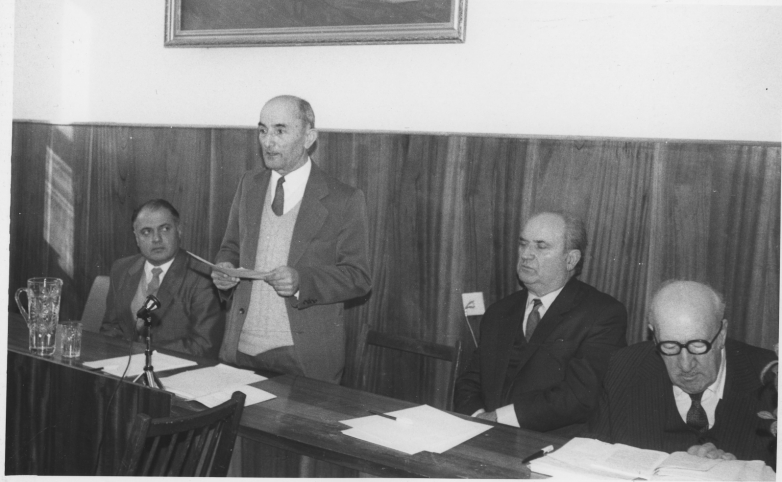
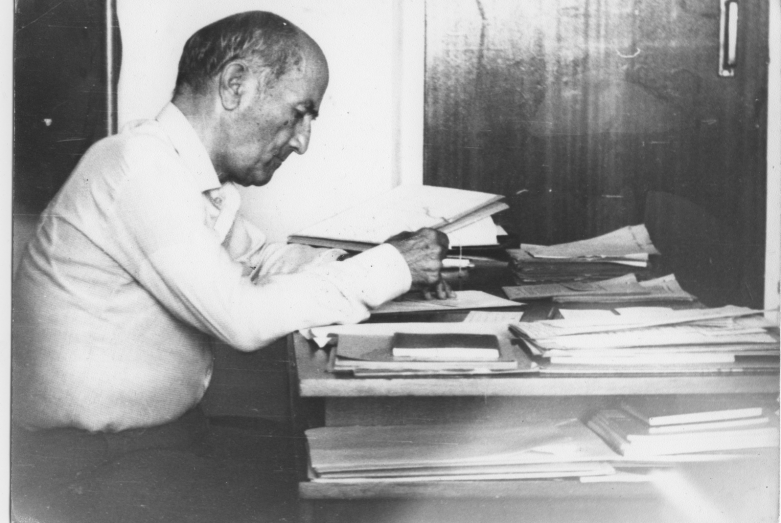
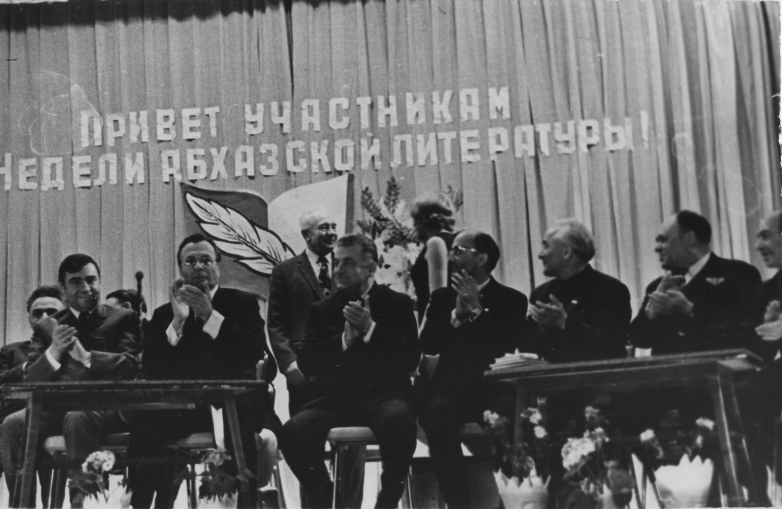
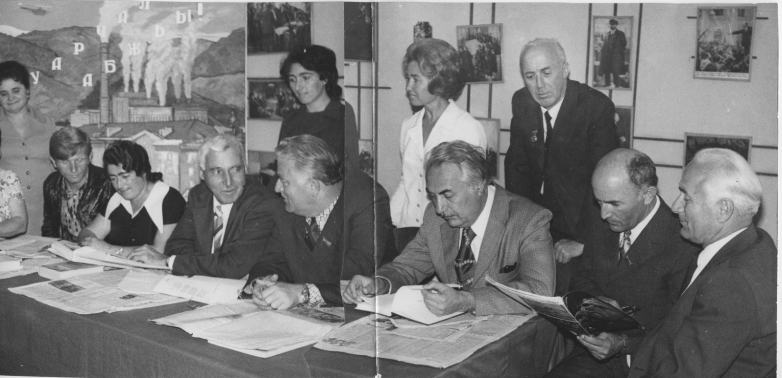
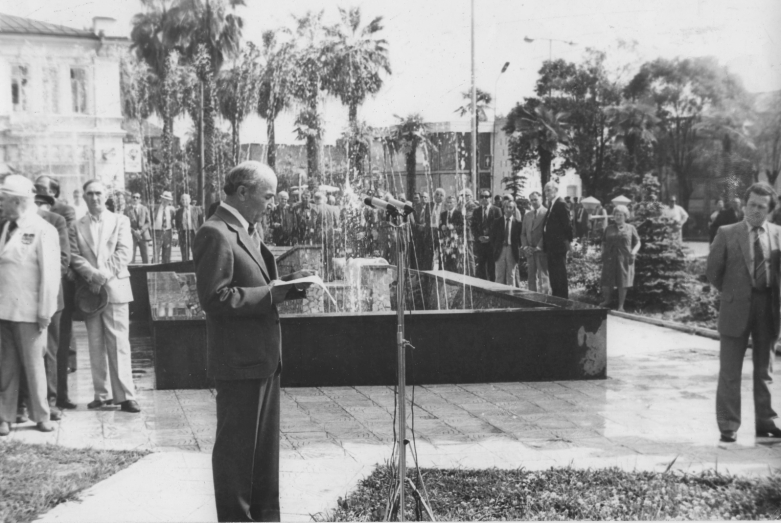
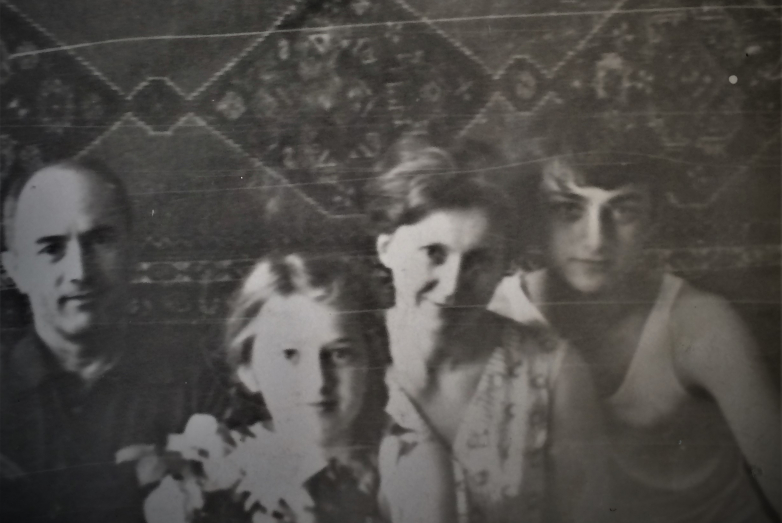
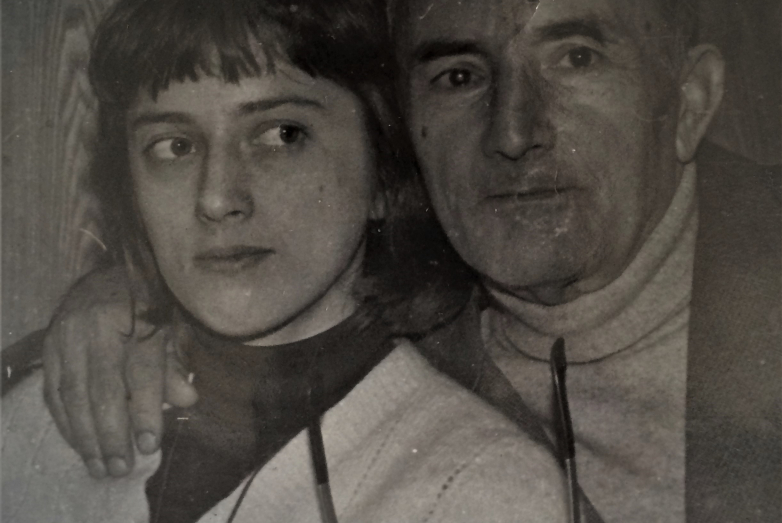
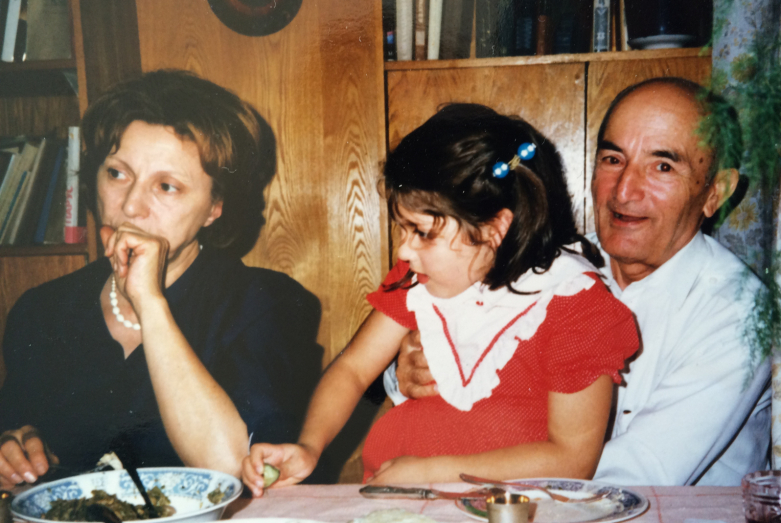
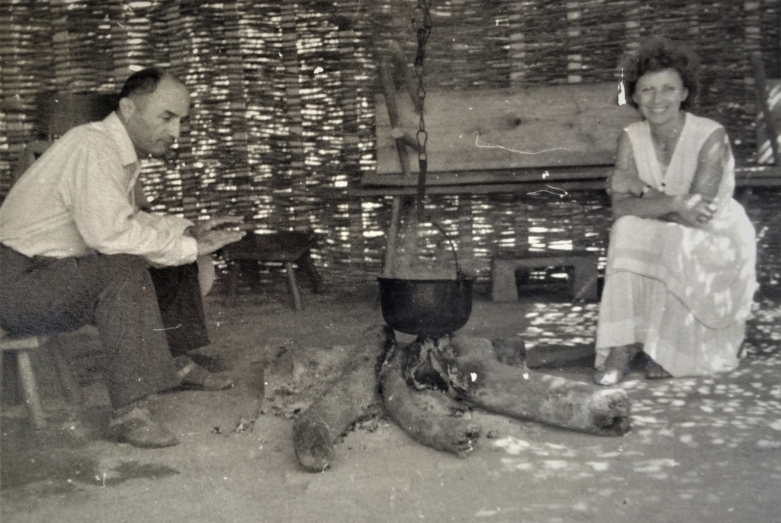
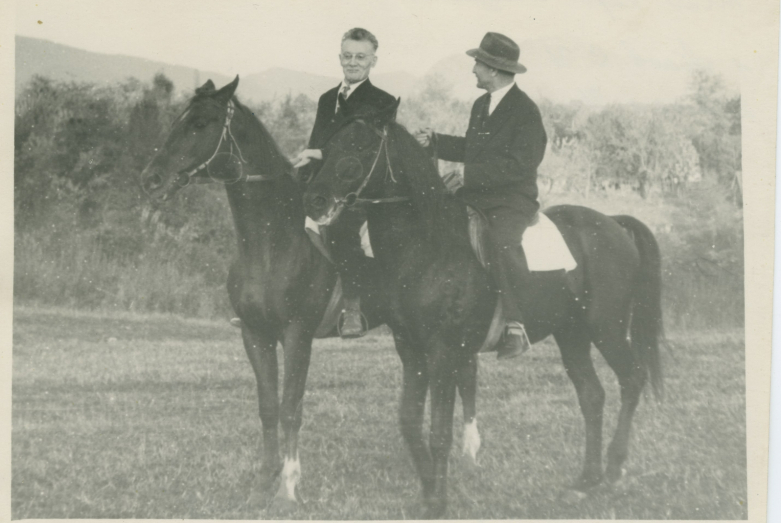
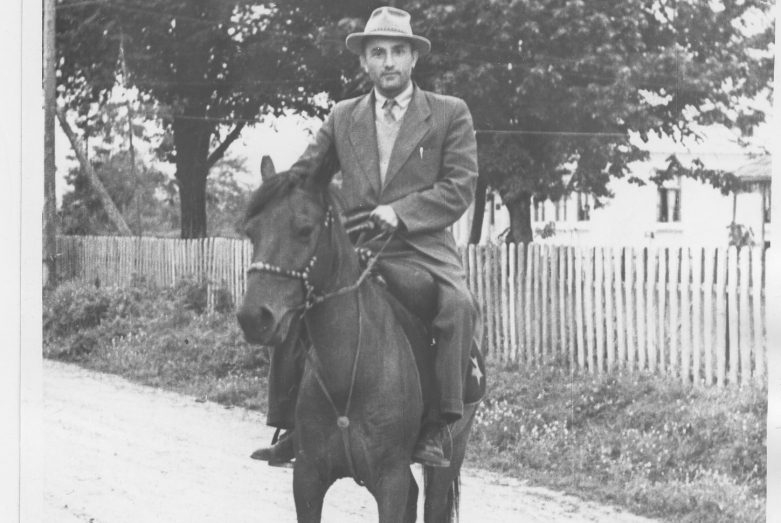
to login or register.